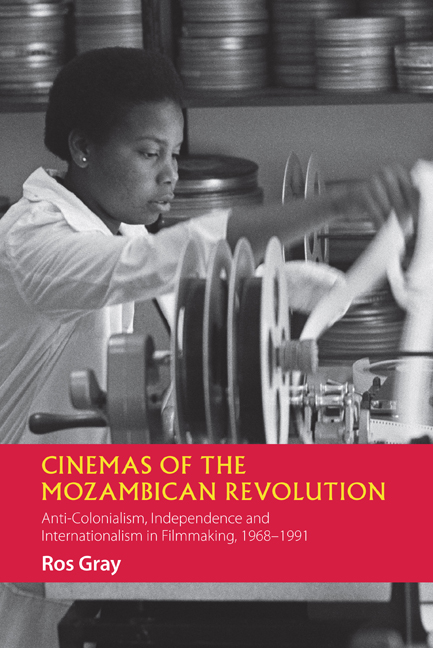 Cinemas of the Mozambican Revolution
Cinemas of the Mozambican Revolution I first visited the building that was once the Instituto Nacional de Cinema ‘National Institute of Cinema’ (INC) in Maputo in 2004, where I met Gabriel Mondlane, director of the Associação Moçambicana de Cineastes ‘Mozambican Association of Filmmakers’ (AMOCINE). That occasion in 2004 was the first time that Mondlane recounted to me how he was picked out when he was still at school as one of a group of teenagers selected to receive training as filmmakers. The Frente de Libertação de Moçambique ‘Mozambique Liberation Front’ (Frelimo), which had led the armed struggle for independence, had in 1975 formed a government, taking control of a country in which most people had little experience of the moving image. In 1976, Frelimo set up the INC and decided that a new generation of Mozambicans – ‘the children of workers and peasants’ – should be trained as part of a wide-reaching revolutionary project of decolonisation that was intended to destroy the injustices and hierarchies established through colonial rule. Mondlane recounted to me that he discovered that this thing called ‘cinema’ was a whole world that produced the magic of moving images on the screen. This tantalising surface had been tightly guarded from the curious eyes of small boys like him, who would scuffle when the ushers refused to let them in. Bit by bit Mondlane learnt to use the mysterious buttons and machines in the sound room. In an edition of the INC's Kuxa Kanema newsreel from 1981 the young filmmaker is glimpsed at work. A mobile cinema unit travels along a country road with people running behind in excitement. As the van enters the village, a loudspeaker announces that tonight there will be a projection of a film. ‘You’ve heard of Internationalism, haven't you?’ the speaker asks. ‘This equipment is a gift from the people of the Soviet Union.’ Children look on eagerly as the projectionist sets up the projector, and the newsreel cuts to an image of Mondlane inside the van adjusting the sound. Cinema is presented as the conduit and embodiment of socialist friendship and an agent of political mobilisation. Mozambican filmmakers are shown bringing the moving image to the people and, in so doing, are connecting their own struggle to other revolutions around the world.
To save this book to your Kindle, first ensure [email protected] is added to your Approved Personal Document E-mail List under your Personal Document Settings on the Manage Your Content and Devices page of your Amazon account. Then enter the ‘name’ part of your Kindle email address below. Find out more about saving to your Kindle.
Note you can select to save to either the @free.kindle.com or @kindle.com variations. ‘@free.kindle.com’ emails are free but can only be saved to your device when it is connected to wi-fi. ‘@kindle.com’ emails can be delivered even when you are not connected to wi-fi, but note that service fees apply.
Find out more about the Kindle Personal Document Service.
To save content items to your account, please confirm that you agree to abide by our usage policies. If this is the first time you use this feature, you will be asked to authorise Cambridge Core to connect with your account. Find out more about saving content to Dropbox.
To save content items to your account, please confirm that you agree to abide by our usage policies. If this is the first time you use this feature, you will be asked to authorise Cambridge Core to connect with your account. Find out more about saving content to Google Drive.